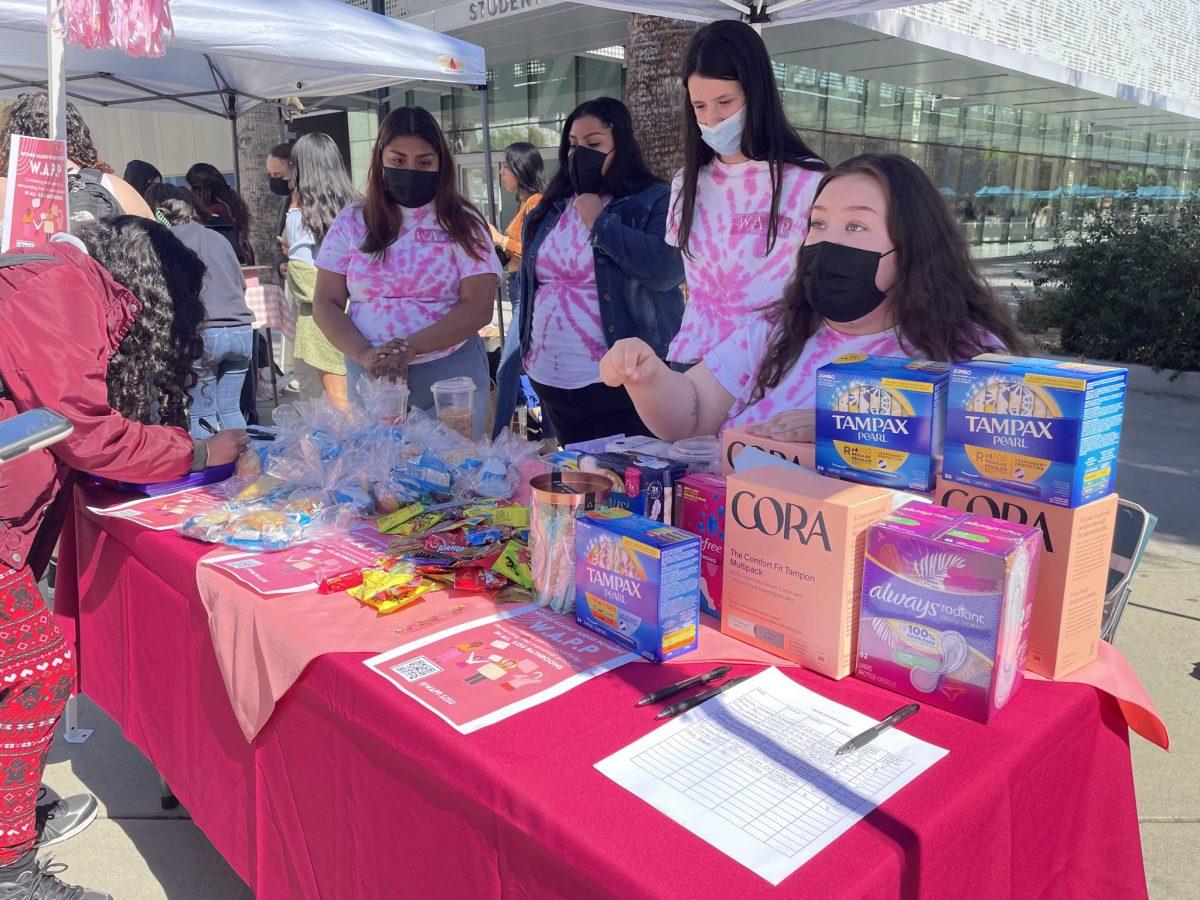
Photo by Saumya Monga
Women Against Period Poverty (WAPP), a campaign started by San Jose State Students is asking the university to install menstrual product dispensers and provide free menstrual products in all restrooms on campus.
The Student Union and Duncan Hall are the only two buildings on campus with free period product dispensers but they’re financed by Associated Students and only available in women’s restrooms, according to the WAPP petition.
Sociology junior Claire Nickison pitched the campaign in her social action class, Sociology 164, with five other students who decided to join the initiative. They made their first social media post on March 1 to introduce their campaign.
Sociology 164 requires students to launch campaigns or organizations to bring social change in the SJSU community, Nickison said in a Zoom call.
“If we’re being expected to provide ourselves with our own period products, we’re being told by the university that our experience is othered,” Nickison said. “That we are responsible for our own bodily functions in a way that people who don’t menstruate are not.”
She said the concept of period poverty isn’t specific to SJSU, it’s an issue happening on a global scale.
About 14% of U.S. college-attending women in 2020 experienced period poverty, or the lack of access to menstrual products, according to a Jan. 6 study published by BMC Women’s health.
BMC Women’s health is an open access, peer-reviewed journal focused on articles about adolescent girls and women’s health and wellbeing, according to its website.
WAPP members said period poverty also concerns people who menstruate and choose to use the men’s bathroom.
“It’s a central part of our campaign . . . that not all women menstruate and not all people who menstruate are women,” Nickison said.
Zeba Aslami, public health junior and WAPP co-founder, said in a Zoom call that the university should provide products in all bathrooms to include those of different gender identities.
She said putting menstrual products only in women’s restrooms is “making those [who menstruate and don’t identify as women] feel like an outsider.”
Aslami said even if free dispensers are already available in the women’s restrooms in two on-campus buildings, they are usually empty.
Dispensers in the library have not been working for “a while,” she said, and dispensers in the Spartan Recreation and Aquatic Center women’s restrooms charge 25 cents for pads and tampons.
“No one really wants to walk across campus to the Student Union in order to get something, especially if it’s an emergency situation,” Aslami said.
WAPP created a Venmo account to allow people to donate to the campaign. Aslami said the money will be used to buy menstrual products and provide them for free in the Spartan Food Pantry.
Campaign organizers recently collaborated on March 23 with the SJSU’s Her Campus chapter on 7th Street Plaza, where they accepted pads, tampons, menstrual cups and cash and Venmo donations.
HerCampus is an online magazine for college women, according to the group’s website. According to Free the Tampon, an advocacy group asking for the inclusion of period products in state budgets, it would cost $5-7 annually per menstruating student for schools to provide menstrual products the same way toilet paper is provided.
“If they’re charging us over $1,000 in student fees for a year . . . [$5-7] should be going towards paying for period products,” Nickison said.
Karla Kimberly Cisneros, sociology junior and WAPP president, said in a Zoom call that she’s always had irregular periods and they could happen when she was least expecting it.
Cisneros realized period products were needed in SJSU bathrooms when she would start to leave extra products in Duncan Hall’s bathroom prior to the coronavirus pandemic and they would quickly be gone.
“It came to the point where I would bring extra period products and I would leave them in the bathrooms wherever I was,” Cisneros said.
Brittney Coker, sophomore social work major and WAPP co-founder, said in a Zoom call that she also experiences irregular periods and hates asking for help when she doesn’t have pads and tampons with her.
She said puting free period products in all restrooms on campus for students would avoid “[making] them feel like they have to be embarrassed [to] ask [for menstrual products].”
Coker, Cisneros, Aslami and Nickison all said they feel that periods are still “a taboo” in society.
“I feel that’s not something that we should be afraid of doing anymore and I think that’s why it should be more of a talk with everyone,” Coker said. “I really think that it is a big issue that most people are just worried to talk about and embarrassed to be able to.”